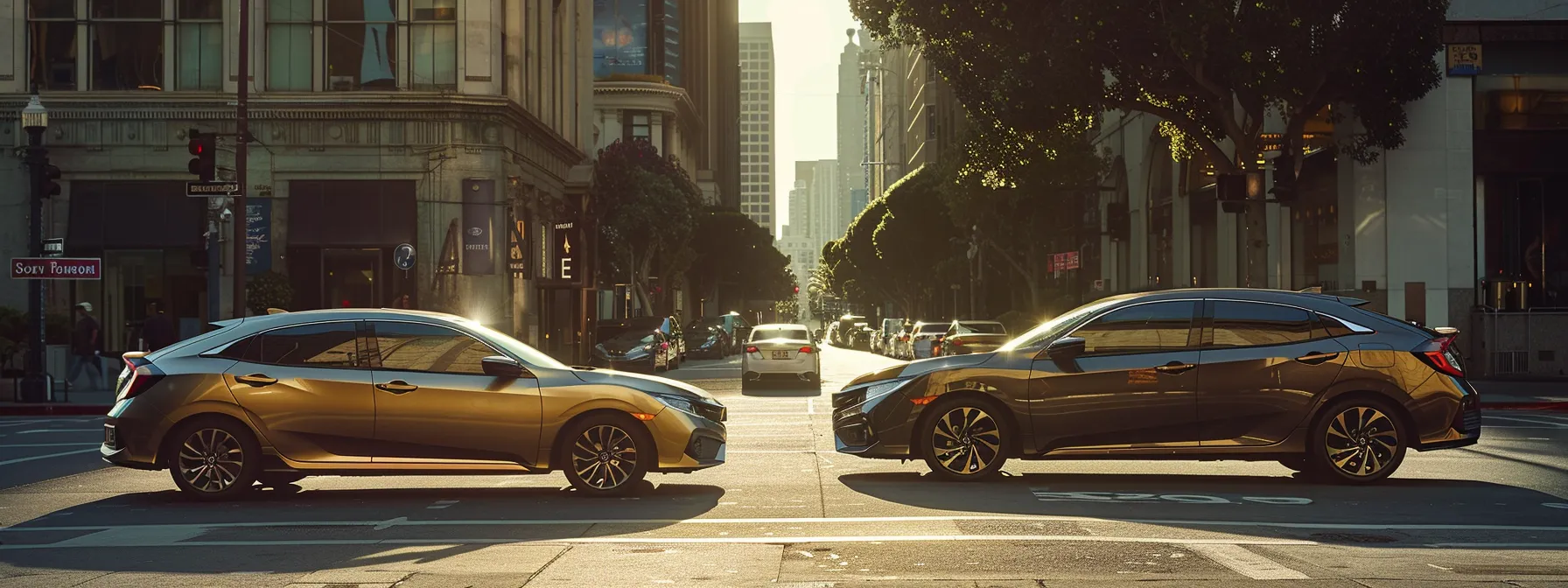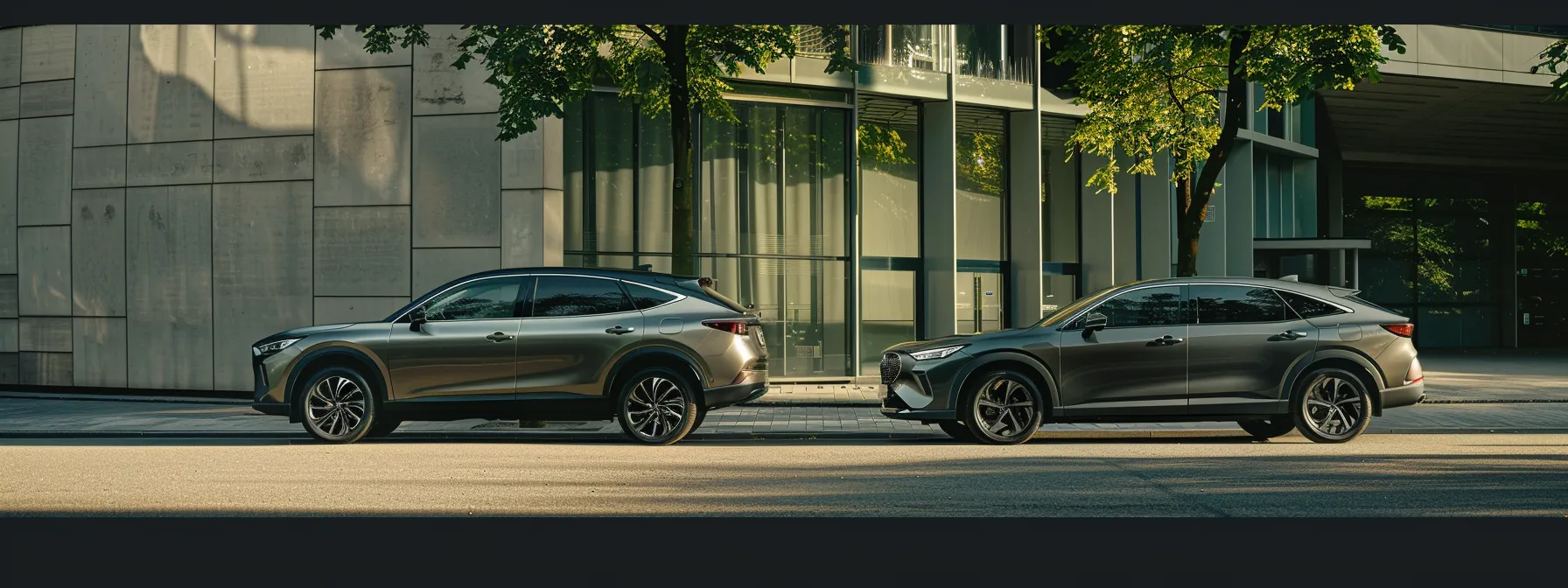Are you aware that a new car can lose up to 20% of its market value within the first year? Understanding the annual depreciation rate of cars is crucial for making informed purchasing decisions. In this guide, we’ll explore key factors influencing depreciation, methods to calculate it, and typical rates for various car categories, including luxury models like the BMW 7 Series. By the end, you’ll have valuable insights to help you minimize your vehicle‘s depreciation, which can also impact your vehicle insurance and license costs. Let’s dive in!
Understanding Car Depreciation and Its Importance

Pre-Owned Cars Car depreciation refers to the decline in a vehicle‘s value over time, which is crucial for car owners to understand. Knowing how depreciation affects models like the Chevrolet Silverado and Chevrolet Tahoe can help you make informed decisions about leasing and purchasing. Additionally, you’ll learn about common misconceptions surrounding depreciation, including its impact on sales tax and the automotive industry.
What Is Car Depreciation?
Car depreciation is the reduction in a vehicle’s value over time, which can significantly impact your financial decisions. For instance, if you’re considering a Pre-Owned Cars Ford Fusion Hybrid, understanding how depreciation affects its resale value can help you determine the right down payment and financing options. This knowledge is essential, especially when you’re looking at refinancing or managing expenses related to interest on your auto loan.
Why Depreciation Matters to Car Owners
Understanding depreciation is vital for you as a car owner because it directly affects the value of your vehicle over time. For instance, if you own a gasoline-powered car, knowing how factors like accidents or maintenance costs, such as motor oil changes, influence depreciation can help you make smarter financial decisions. This knowledge not only aids in determining the right time to sell or trade in your vehicle but also helps you understand how your property’s value may change, ensuring you get the best return on your investment as a consumer.
Common Misconceptions About Depreciation
Many people believe that depreciation only affects luxury brands or high-end vehicles, but this isn’t true. Every car, regardless of its engine type or brand, experiences wear and tear that contributes to its depreciation rate. Understanding that depreciation is a percentage of the total cost of ownership can help you make better decisions when buying or selling your vehicle, ensuring you account for how much value your car may lose over time.
Another common misconception is that depreciation is linear, meaning it decreases at a constant rate. In reality, the depreciation rate can vary significantly based on factors like mileage, condition, and market demand. For example, a well-maintained vehicle may retain its value better than one that has experienced significant wear and tear, highlighting the importance of regular maintenance in preserving your car’s worth.
Car depreciation is a reality every buyer faces. Now, let’s explore the key factors that shape how quickly your car loses value each year.
Key Factors Influencing the Annual Depreciation Rate

Several key factors influence the annual depreciation rate of your vehicle. The age and mileage of your car play a significant role, as older vehicles with higher miles typically lose value faster. Additionally, the make and model can impact depreciation, with some brands retaining value better than others. The condition and maintenance of your vehicle also matter, as well-maintained cars tend to depreciate more slowly. Economic factors and market demand can further affect your car’s value, while technological advancements may lead to quicker obsolescence. Understanding these elements can help you make informed decisions about refinancing and managing your vehicle‘s worth.
The Role of Vehicle Age and Mileage
The age and mileage of your vehicle are significant factors that influence its annual depreciation rate. For instance, a Toyota Tundra that is just a few years old with low mileage will typically retain more value compared to an older model with high mileage. Understanding this can help you make informed decisions about your insurance policy and when to sell or trade in your vehicle, ensuring you maximize your cash return. Resources like Edmunds can provide valuable insights into how these factors affect your specific vehicle‘s depreciation, allowing you to plan better for future expenses, including potential tax implications under MACRS (Modified Accelerated Cost Recovery System).
Impact of Make and Model on Depreciation
The make and model of your vehicle play a significant role in determining its depreciation rate. Generally, vehicles from brands known for reliability and strong demand, like Toyota or Honda, tend to retain their value better than others. This is largely due to supply and demand dynamics; when a model is in high demand, its price remains more stable, reducing the average depreciation you might experience. For example, if you own a popular SUV, you may find that its value holds up well, even as oil prices fluctuate and affect the overall market.
How Condition and Maintenance Affect Value
The condition and maintenance of your motor vehicle play a crucial role in determining its depreciation rate. For example, if you own a Toyota Tacoma and keep it well-maintained with regular oil changes and timely repairs, you can expect it to retain more value over time compared to a similar model that has been neglected. Understanding how proper care impacts your vehicle‘s worth is essential for your personal finance strategy, as it directly influences your ownership experience and potential resale value.
Economic Factors and Market Demand
Economic factors and market demand play a significant role in determining the annual depreciation rate of your vehicle. For instance, if you own a Nissan Leaf, understanding how shifts in fuel prices or changes in consumer preferences for electric vehicles can impact its resale value is essential. A statistic to consider is that when demand for a specific model decreases, the opportunity cost of holding onto that vehicle increases, leading to a faster depreciation rate. By staying informed about these economic trends, you can make smarter decisions regarding your car ownership and potentially maximize your investment.
Technological Advancements and Obsolescence
Technological advancements can significantly impact the value of your vehicle, especially as new features and alternative fuel options become available. For instance, if you own a traditional sedan, you might notice that as electric and hybrid models gain popularity, the demand for older gasoline-powered cars may decline, leading to faster depreciation. Additionally, changes in interest rates can affect your financing options, making it essential to stay informed about how these trends influence your car’s resale value and overall ownership experience.
Understanding how cars lose value is just the beginning. Now, let’s explore the methods you can use to calculate that depreciation and make informed decisions.
Methods to Calculate Annual Depreciation of Cars

Understanding how to calculate the annual depreciation of your vehicle is essential for making informed financial decisions. In this section, you’ll explore the Straight-Line Depreciation method, which offers a simple approach, and the Declining Balance Method, which accounts for asset risk over time. Additionally, the Sum-of-the-Years’-Digits Method provides a more accelerated depreciation option. Choosing the right calculation method can help you maximize the value of your BMW 5 Series or any other vehicle, especially when considering factors like warranty and vehicle identification number.
Straight-Line Depreciation Explained
Straight-line depreciation is a straightforward method for calculating the annual depreciation of your vehicle. This approach divides the initial cost of the car by its useful life, providing a consistent annual depreciation amount. For example, if you purchase a pre-owned car from Indy Auto Team for $20,000 and expect it to last for five years, you would depreciate it by $4,000 each year, regardless of inflation or market fluctuations. Using a best car value estimator can help you understand how this method impacts your vehicle’s resale value over time, ensuring you make informed decisions about your investment.
Declining Balance Method Overview
The Declining Balance Method is a more dynamic approach to calculating your vehicle’s annual depreciation. Unlike the Straight-Line method, which spreads the depreciation evenly over the car’s useful life, this method allows for a higher depreciation rate in the earlier years. For example, if you purchase a vehicle and refer to resources like Edmunds Car Reviews, you might find that the first year could see a significant drop in value, which can help you understand how to manage your finances better as you plan for future expenses or potential resale.
Sum-of-the-Years’-Digits Method
The Sum-of-the-Years’-Digits Method is an accelerated depreciation approach that allows you to account for a vehicle‘s value loss more aggressively in the earlier years of ownership. This method calculates depreciation by taking the vehicle‘s useful life and summing the digits of each year, which gives you a fraction to apply to the initial cost. For example, if you buy a car with a five-year lifespan, the sum of the years would be 15 (5+4+3+2+1), and in the first year, you would take 5/15 of the car’s cost, leading to a higher depreciation amount initially, which can be beneficial for budgeting and planning your finances effectively.
Choosing the Right Calculation Method
Choosing the right calculation method for your car’s annual depreciation is essential for understanding its value over time. If you prefer a straightforward approach, the Straight-Line method offers a consistent annual depreciation amount, making it easy to budget. On the other hand, if you want to account for the rapid value loss in the early years, the Declining Balance method might be more suitable, allowing you to plan your finances effectively as your vehicle ages.
Now that you know how to calculate depreciation, it’s time to look at how different types of cars fare over time. Understanding typical depreciation rates can help you make smarter choices when buying your next vehicle.
Typical Depreciation Rates for Different Car Categories

Understanding typical depreciation rates for different car categories is essential for making informed decisions. New cars generally experience steeper depreciation compared to used cars, while luxury vehicles tend to lose value faster than economy models. Additionally, electric and hybrid vehicles have unique depreciation patterns influenced by market demand. Brand reputation also plays a significant role in how well a vehicle retains its value. Each of these factors will be explored in detail to help you navigate your car ownership journey.
New Cars vs. Used Cars Depreciation Rates
When it comes to depreciation rates, new cars typically experience a sharper decline in value compared to used cars. For instance, a new vehicle can lose around 20% of its value within the first year alone, while used cars tend to depreciate at a slower rate as they have already absorbed some of that initial loss. Understanding this difference can help you make smarter choices about whether to buy new or used, ensuring you get the best value for your investment.
Luxury Cars vs. Economy Cars
When comparing luxury cars to economy cars, you’ll find that luxury vehicles tend to depreciate at a faster rate. This is often due to their higher initial price and the rapid changes in consumer preferences for newer models packed with advanced technology. For example, a luxury sedan may lose around 30% of its value within the first three years, while an economy car might only lose about 20% in the same timeframe, making it essential for you to consider these factors when deciding on your next vehicle purchase.
Depreciation Patterns for Electric and Hybrid Vehicles
Depreciation patterns for electric and hybrid vehicles can differ significantly from traditional gasoline-powered cars. Generally, these vehicles may experience slower depreciation rates due to increasing demand and advancements in technology. For example, as more consumers seek eco-friendly options, models like the Toyota Prius or Tesla Model 3 tend to hold their value better, making them a smart choice for budget-conscious buyers looking to maximize their investment.
How Brand Reputation Affects Depreciation
Your vehicle‘s brand reputation plays a significant role in its depreciation rate. Cars from manufacturers known for reliability and quality, like Toyota and Honda, often retain their value better than those from brands with less favorable reputations. For instance, if you choose a well-regarded brand, you may find that your car depreciates at a slower rate, allowing you to maximize your investment when it comes time to sell or trade it in.
Depreciation can feel like a thief in the night, quietly stealing value from your car. But there are ways to fight back and keep more money in your pocket; let’s explore those strategies.
Strategies to Reduce Your Car’s Depreciation

To reduce your car’s depreciation, focus on maintaining its value through regular upkeep and smart purchasing decisions. Consider how upgrades and modifications can enhance your vehicle‘s appeal, and be strategic about timing the sale of your car. Each of these strategies plays a crucial role in maximizing your investment and ensuring you get the best return when it’s time to sell.
Tips for Maintaining Your Car’s Value
To maintain your car’s value and reduce depreciation, regular maintenance is key. Keeping up with oil changes, tire rotations, and other routine services not only ensures your vehicle runs smoothly but also demonstrates to potential buyers that you’ve taken good care of it. Additionally, addressing minor repairs promptly can prevent them from becoming larger, more costly issues down the line, ultimately helping you maximize your investment when it’s time to sell or trade in your car.
Smart Purchasing Decisions
When making smart purchasing decisions, consider buying a vehicle that has a strong reputation for reliability and resale value. Brands like Toyota and Honda often retain their worth better than others, which can save you money in the long run. Additionally, opting for a slightly used car instead of a brand-new model can help you avoid the steep depreciation that occurs in the first year, allowing you to maximize your investment while still enjoying a high-quality vehicle.
The Impact of Upgrades and Modifications
Upgrades and modifications can significantly impact your car’s depreciation rate, often enhancing its appeal and value. For instance, adding features like a premium sound system or advanced safety technology can make your vehicle more attractive to potential buyers, helping you retain more of its value when it’s time to sell. However, it’s essential to choose upgrades wisely; focusing on enhancements that align with market trends and consumer preferences can maximize your investment and minimize depreciation.
Timing the Sale of Your Car
Timing the sale of your car can significantly impact its depreciation rate and overall value. If you sell your vehicle just before it reaches a major milestone, such as 100,000 miles or the end of its warranty, you can often secure a better price. Additionally, consider market trends; selling during peak demand seasons, like spring or summer, can help you maximize your return, as buyers are typically more active during these times.
You’ve learned how to keep your car’s value from slipping away. Now, let’s explore how depreciation affects your insurance and taxes, and why it matters to you.
Understanding Depreciation in Relation to Insurance and Taxes

Understanding how depreciation impacts your insurance claims and tax deductions is essential for managing your vehicle‘s financial aspects. You’ll learn about the importance of gap insurance in protecting your investment and why consulting professionals for financial advice can be beneficial. Each of these topics will provide you with practical insights to help you navigate the complexities of car ownership.
How Depreciation Affects Insurance Claims
Understanding how depreciation affects your insurance claims is essential for protecting your investment. When you file a claim for a totaled vehicle, the insurance company typically calculates the payout based on the car’s current market value, which reflects its depreciation. For example, if your car has depreciated significantly since you purchased it, you may receive less compensation than expected, highlighting the importance of keeping track of your vehicle‘s value over time.
Depreciation and Tax Deductions
Understanding how depreciation affects your tax deductions can help you make smarter financial decisions regarding your vehicle. When you use your car for business purposes, you may be able to deduct a portion of its depreciation on your taxes, which can lower your taxable income. For example, if you own a vehicle that has depreciated significantly, knowing how to calculate that depreciation can maximize your tax benefits, ultimately saving you money and improving your overall financial strategy.
The Importance of Gap Insurance
Gap insurance is essential for protecting your investment in case your vehicle is totaled or stolen. When you file a claim, your standard insurance typically covers only the current market value of your car, which may be significantly less than what you owe on your loan due to depreciation. By having gap insurance, you can ensure that any remaining balance on your auto loan is covered, giving you peace of mind and financial security during a stressful situation.
Consulting Professionals for Financial Advice
Consulting professionals for financial advice can be a smart move when navigating the complexities of car depreciation, insurance, and taxes. A financial advisor can help you understand how depreciation impacts your vehicle‘s value and how it relates to your insurance claims and potential tax deductions. By seeking expert guidance, you can make informed decisions that protect your investment and optimize your financial strategy, ensuring you get the most out of your vehicle ownership experience.
Conclusion
Understanding the annual depreciation rate of cars is essential for making informed financial decisions as a car owner. By recognizing how factors like age, mileage, make, and condition influence your vehicle‘s value, you can better strategize your purchase and sale timing. Additionally, maintaining your car and choosing the right calculation methods can significantly impact your investment’s return. Ultimately, being knowledgeable about depreciation empowers you to maximize your vehicle‘s worth and navigate the complexities of car ownership with confidence.
Recent Posts

Honda Civic vs Toyota Corolla: Ultimate MPG Comparison
Are you trying to decide between the Honda Civic and Toyota Corolla for your next car? Both models are known for their reliability and fuel efficiency, but which one truly offers better miles per gallon (MPG)? In this comparison, I’ll break down the official MPG ratings, real-world performance, and the engineering behind their fuel efficiency. [...]

SUV vs Sedan: Analyzing Depreciation Rates Comparison
When choosing a men’s wedding ring, many people overlook titanium, assuming it lacks the elegance of platinum or gold. However, titanium men's rings offer unmatched durability, lightweight comfort, and a modern aesthetic that aligns with today’s wedding ring trends. In this article, you will discover the benefits of titanium wedding bands, including their hypoallergenic properties [...]

Guide to Successful Bad Credit Auto Financing
Are you struggling to finance your car due to bad credit? You're not alone. Many people face challenges when seeking auto financing, but there are options available. In this guide, I will cover how to understand your credit score, explore bad credit auto financing options, and navigate the application process successfully. By the end, you'll [...]
Find the car you need.
At Indy Auto, we are committed to providing you with the best solutions tailored to your driving needs. Whether you’re navigating city streets or cruising down the highway, our dedicated team ensures that you have access to top-quality vehicles, parts, and services that enhance your driving experience.
